Friday
Friday 12th August 2022
August 12, 2022
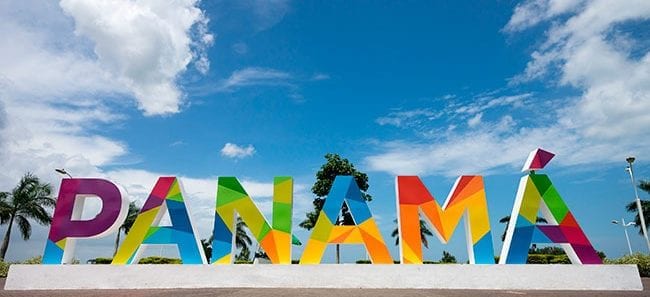 The National Assembly began this Thursday, August 11, a public hearing on project 844 that repeals laws 122 of 2019 and 314 of 2022, which grant tourist incentives. During this first meeting, representatives of groups linked to tourism investment and promoters participated, who defended the regulations that offer fiscal incentives. “The people who criticize the law do not know the genesis of this rule,” said Octavio Vallarino, from the Bahía Development group. He said that investors from Mexico were planning to arrive in the country, attracted by tourist sites under development, such as Contadora. Crispiano Adames, President of the Assembly, chaired the meeting. He asked government representatives to present “numbers” of how much it means to grant tax incentives. He also asked the promoters and investors to present the figures to know if the current regulations are viable. “They have to uphold the standard, with data,” he said. The Assembly plans to hold another public hearing at a later date with the sectors that defend the bill that repeals tax incentives for tourism. These regulations have been in the eye of the storm, because they grant millionaire tax credits to investors in projects developed by a group of businessmen close to power.
The National Assembly began this Thursday, August 11, a public hearing on project 844 that repeals laws 122 of 2019 and 314 of 2022, which grant tourist incentives. During this first meeting, representatives of groups linked to tourism investment and promoters participated, who defended the regulations that offer fiscal incentives. “The people who criticize the law do not know the genesis of this rule,” said Octavio Vallarino, from the Bahía Development group. He said that investors from Mexico were planning to arrive in the country, attracted by tourist sites under development, such as Contadora. Crispiano Adames, President of the Assembly, chaired the meeting. He asked government representatives to present “numbers” of how much it means to grant tax incentives. He also asked the promoters and investors to present the figures to know if the current regulations are viable. “They have to uphold the standard, with data,” he said. The Assembly plans to hold another public hearing at a later date with the sectors that defend the bill that repeals tax incentives for tourism. These regulations have been in the eye of the storm, because they grant millionaire tax credits to investors in projects developed by a group of businessmen close to power.
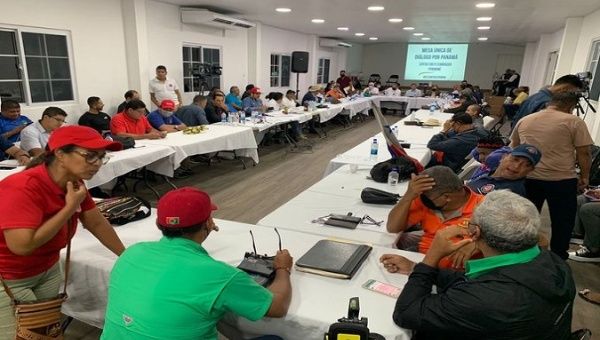 The Archbishop of Panama, José Domingo Ulloa, reiterated this Thursday, August 11, that the Executive Body is the one who can summon other sectors of the country to the single dialogue table, which takes place in Penonomé Coclé. Ulloa’s reaction comes after several business, producers and civil society groups continue to express their interest in participating at the table and have not received a positive response. Ulloa affirmed that it is not the church that convenes the table, who does it is the national government and that the church only plays the role of facilitator. He stated that they hope that this first phase of talks will conclude soon to enter the second phase in which permanent results can be found for the common good of Panamanians.
The Archbishop of Panama, José Domingo Ulloa, reiterated this Thursday, August 11, that the Executive Body is the one who can summon other sectors of the country to the single dialogue table, which takes place in Penonomé Coclé. Ulloa’s reaction comes after several business, producers and civil society groups continue to express their interest in participating at the table and have not received a positive response. Ulloa affirmed that it is not the church that convenes the table, who does it is the national government and that the church only plays the role of facilitator. He stated that they hope that this first phase of talks will conclude soon to enter the second phase in which permanent results can be found for the common good of Panamanians.
 The National Union of Pharmacy Owners (Unprofa) expressed its resounding rejection of the promulgation of Executive Decree No. 17 of August 10, 2022, which orders a 30% reduction in the price of 170 medicines. According to this guild, which brings together about 450 pharmacies in the country, said the decree will not end the shortage of medicines from the Social Security Fund and the Ministry of Health, nor with the high price of medicines. However, “it will lead to bankruptcy” for small pharmacies throughout the national territory, thereby leading to more unemployment and consequently the shortage of small private pharmacies, “benefiting only the large national and international pharmacy chains.”
The National Union of Pharmacy Owners (Unprofa) expressed its resounding rejection of the promulgation of Executive Decree No. 17 of August 10, 2022, which orders a 30% reduction in the price of 170 medicines. According to this guild, which brings together about 450 pharmacies in the country, said the decree will not end the shortage of medicines from the Social Security Fund and the Ministry of Health, nor with the high price of medicines. However, “it will lead to bankruptcy” for small pharmacies throughout the national territory, thereby leading to more unemployment and consequently the shortage of small private pharmacies, “benefiting only the large national and international pharmacy chains.”
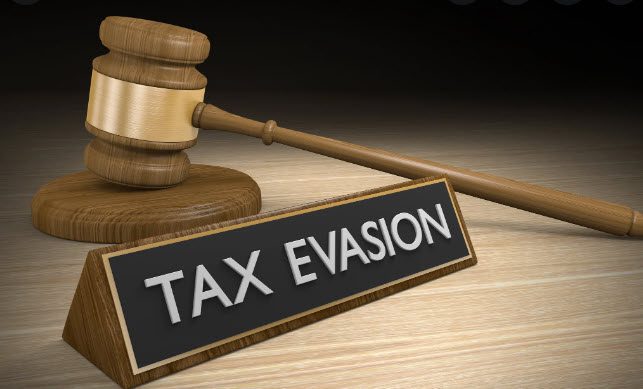 A third complaint for the alleged crime of tax fraud was presented by the General Directorate of Revenue (DGI) this Thursday, August 11, 2022. Maruquel Donado, head of the Tax Evasion and Fraud section of the DGI, explained that the criminal complaint is filed against a company that would have incurred in a tax fraud the amount of which exceeds 300 thousand dollars. The official indicated that, when this figure is exceeded, the category of crime is attributed to it in accordance with the provisions of the Tax Procedure Code . Donado alleged that, after investigations and previous procedures of the Tax Evasion and Fraud section, “it was confirmed that there was a fraud” for more than 300 thousand dollars by the accused.
A third complaint for the alleged crime of tax fraud was presented by the General Directorate of Revenue (DGI) this Thursday, August 11, 2022. Maruquel Donado, head of the Tax Evasion and Fraud section of the DGI, explained that the criminal complaint is filed against a company that would have incurred in a tax fraud the amount of which exceeds 300 thousand dollars. The official indicated that, when this figure is exceeded, the category of crime is attributed to it in accordance with the provisions of the Tax Procedure Code . Donado alleged that, after investigations and previous procedures of the Tax Evasion and Fraud section, “it was confirmed that there was a fraud” for more than 300 thousand dollars by the accused.
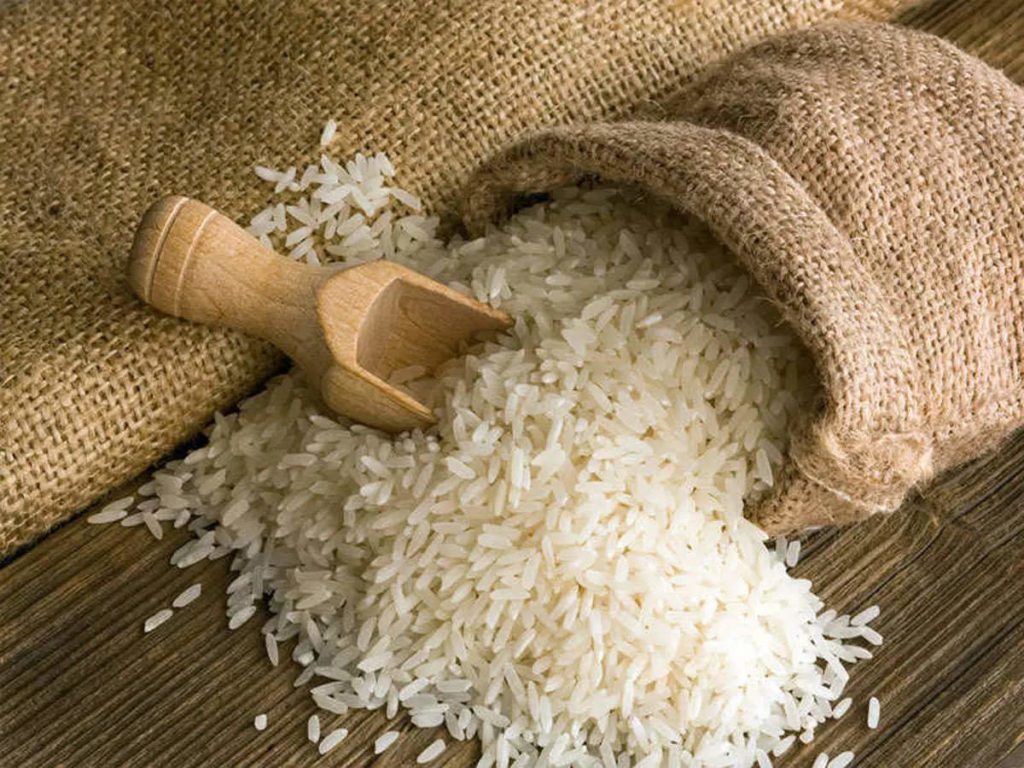 The Authority for Consumer Protection and Defense of Competition (Acodeco) revealed this Thursday, August 11, that only 2 of 56 national milled rice brands meet quality parameters, the Association of Merchants and Distributors of Food and Similar Products of Panama (Acovipa) stated that there will soon be a shortage. According to Acovipa, the delay in the harvest and the late entry of the quota of 600,000 quintals of paddy rice are the causes of not having “sufficient availability of first-class rice for the month of August.” According to Acodeco, 32 special-type brands and 22 first-class brands failed to comply with grain quality analyses. “The only two brands met the standard of premium rice,” the report emphasized. According to the technical regulation, the current standard in the country, of “special rice must contain at least 94.5% whole grains, 5% broken grains and 0.5% small rice”. While the first class rice should have 70% whole grains, 25% broken grains and 5% small rice. In addition, the second class should have 55% whole grains, 30% broken grains and 15% small rice.
The Authority for Consumer Protection and Defense of Competition (Acodeco) revealed this Thursday, August 11, that only 2 of 56 national milled rice brands meet quality parameters, the Association of Merchants and Distributors of Food and Similar Products of Panama (Acovipa) stated that there will soon be a shortage. According to Acovipa, the delay in the harvest and the late entry of the quota of 600,000 quintals of paddy rice are the causes of not having “sufficient availability of first-class rice for the month of August.” According to Acodeco, 32 special-type brands and 22 first-class brands failed to comply with grain quality analyses. “The only two brands met the standard of premium rice,” the report emphasized. According to the technical regulation, the current standard in the country, of “special rice must contain at least 94.5% whole grains, 5% broken grains and 0.5% small rice”. While the first class rice should have 70% whole grains, 25% broken grains and 5% small rice. In addition, the second class should have 55% whole grains, 30% broken grains and 15% small rice.
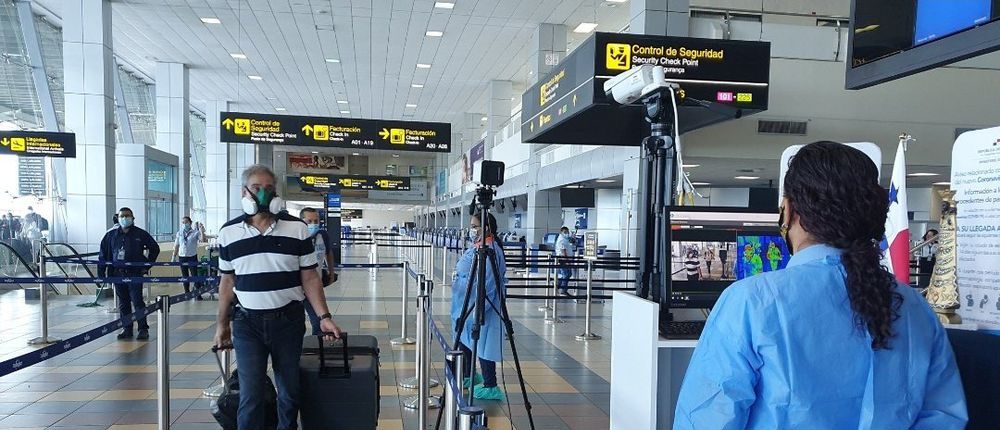 The movement of passengers through the Tocumen International Airport continues to reflect an increase in recent months and the projection is that the year will close with at least 13 million travelers mobilized. According to data from Tocumen SA, between January and July 2022, 8,769,966 passengers were mobilized. Of that amount, one million 465 thousand 761 were registered in the past month of July; this represented 562 thousand 355 more travelers compared to the same month of 2021
The movement of passengers through the Tocumen International Airport continues to reflect an increase in recent months and the projection is that the year will close with at least 13 million travelers mobilized. According to data from Tocumen SA, between January and July 2022, 8,769,966 passengers were mobilized. Of that amount, one million 465 thousand 761 were registered in the past month of July; this represented 562 thousand 355 more travelers compared to the same month of 2021
